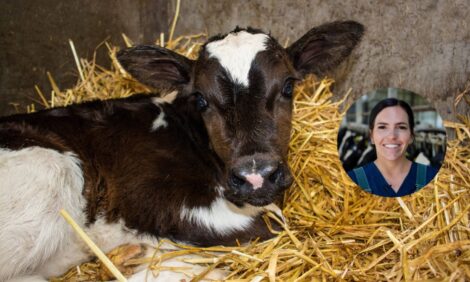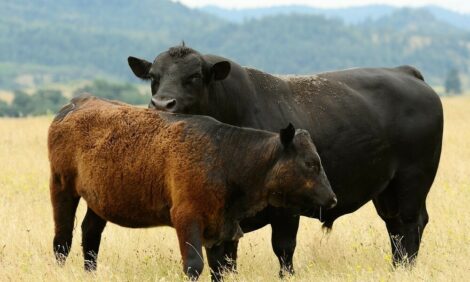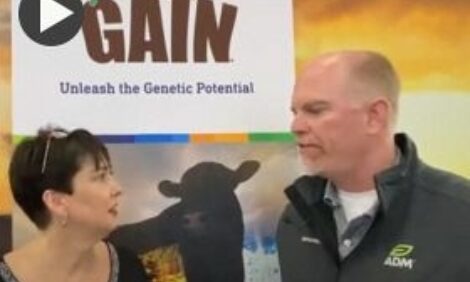



Blockyard: production, health and genomic info for individual cattle
Ken Anderson, Director of Technical Services with Beef Genetics, spoke to The Cattle Site's Sarah Mikesell about Blockyard at the recent NCBA conference in Houston.Part of Series:
< Previous Article in Series Next Article in Series >
Ken Anderson, Director of Technical Services with Beef Genetics, spoke to The Cattle Site's Sarah Mikesell about Blockyard at the recent NCBA conference in Houston.
“We're really excited about Blockyard because we think it creates a conduit for the different segments of the beef industry to share information,” said Anderson. “Historically, a lot of information has been locked in silos as you go from one segment to the next. But Blockyard creates a very secure and permission-based place where the segments might connect.”
Blockyard helps collect, transfer, and connect information on individual cattle from multiple sources. The new blockchain solution was developed in collaboration with IBM Consulting and leverages IBM Blockchain Platform on the IBM Cloud. It works with existing cattle management software, such as Performance Ranch, to allow seamless integration of data.
The easy-to-use software provides users insights to make informed decisions across financials, nutrition, genetics and animal health. Users are able to access real-time data and see variations in performance to make more informed and earlier decisions on the health and marketability of their animals.
How is Blockyard connected to genetics?
The genetic portion of Blockyard is optional, but a cow-calf producer might enroll animals into a genetic testing program after they're entered their information into Blockyard. They can then order genetic predictions, such as the Inherent Select predictions. Or producers can test calf crops, whereby potential buyers of groups of feeder cattle could access genetic predictions for feedlot and carcass traits. This sharing of information is designed to unlock the value of the animals.
Transparency across the value chain
Beyond the feeder, Blockyard can be used by packers, retailers and others. For example, a meat sample could be genotyped and matched to the animal that was previously tested to authenticate data and help tell the story along the entire supply chain.
“We know consumers want to know more about where their food comes from and how it was raised and managed and the various steps along the way,” said Anderson. “They are also sensitive to various product and label claims. This will help create a digital clone or record of the animal and everything that has happened to it along its pathway.”
What will Blockyard mean for producers?
“The bottom line for producers is they can get more information. Go to welcome.blockyard.com and learn more. Establishing an account and the initial uploading of animal information can be achieved by following the instructions at the website,” noted Anderson.







